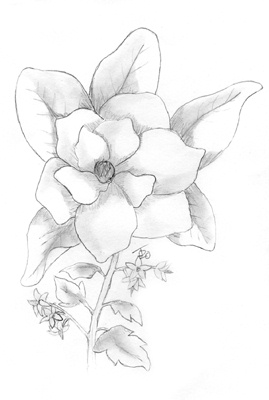All Nonfiction
- Bullying
- Books
- Academic
- Author Interviews
- Celebrity interviews
- College Articles
- College Essays
- Educator of the Year
- Heroes
- Interviews
- Memoir
- Personal Experience
- Sports
- Travel & Culture
All Opinions
- Bullying
- Current Events / Politics
- Discrimination
- Drugs / Alcohol / Smoking
- Entertainment / Celebrities
- Environment
- Love / Relationships
- Movies / Music / TV
- Pop Culture / Trends
- School / College
- Social Issues / Civics
- Spirituality / Religion
- Sports / Hobbies
All Hot Topics
- Bullying
- Community Service
- Environment
- Health
- Letters to the Editor
- Pride & Prejudice
- What Matters
- Back
Summer Guide
- Program Links
- Program Reviews
- Back
College Guide
- College Links
- College Reviews
- College Essays
- College Articles
- Back
Dutch MAG
“I always thought of you as gruff,a bear imbedded in a man. You and your overbearing voice, shoutingorders. I jumped when I saw you coming and flinched when you opened yourmouth, but something always brought me back.
“I learned tolove.
“Forced to love.
“Expected to love andrespect you.
“Now I know and now I see and now you say youneed me? I have realized my childhood image of you was false. A bearwould have known better.”
He was supposed to be a grandpa,but the name was just another title added to his list ofaccomplishments. His spirit was much younger than he thought and age wasjust a number. Dutch wore many hats, from cattle rancher to husband tocar dealer, but the hat that never fit him was family man. As a fatherhe had been too young, but by the time his grandchildren were born, hehad settled into his age and finally accepted the responsibilityof parenthood. His unforgettable features and undeniable ways wouldshape the lives of more than just his own children.
When I was achild, Dutch was frightening: his enormous mass and thundering voicewere overwhelming to all. His leathery skin was incomplete without manyscars or bleeding scratches, and the fine lines of age matched thesaddle he put on his horse.
He seemed to have no feelings; noinjury could stop him, and no amount of whining would break him, andreasoning with him was unimaginable. His voice was the essence of who hewas and was the perfect summation of what I remember of him. His voicewas like a crack of thunder. Its initial volume was sharp and startlingand its depth shook your body. You would wince and lower your head likea dog that has been abused. They weren’t always mean words, butthey were always overpoweringly loud.
My grandmother was the keyto surviving Dutch. She was the only one who could refuse, debate, ordeny his orders. However, deciding whom to listen to was a battle of itsown. He would stand at the far end of the arena, either on horseback orfoot with Grandma at the other; symbolically one could already observetheir opposites at work.
I would be riding, focusing on myposition or the collectiveness of the horse’s frame, and each timeI passed Grandma, she would correct me: “Sit up,”“Slow down,” “Knees in.” As I rode away fromher, I would struggle to achieve these suggestions only to reach Dutch,where I would be met with, “Sit back,” “Speedup,” “Toes out.” Not only would I be startled by themanner in which the commands were given, but it would be the opposite ofwhat I had just been told. Around and around this vicious cycle would gountil one was overpowered and retreated to the house. Left in limbo, Ionly waited for the final verdict, which usually came fromGrandma.
At his funeral I learned more about Dutch than I hadever known. One by one, customers, employees and fellow cowboysexpressed their sorrow and spoke of him as a hero, a confidant andfriend. I was asked to speak on behalf of my sisters and cousins, and soI prepared a speech that described the fine points that made my grandpaone-of-a-kind.
“In place of advice about school or life, heoffered advice on showmanship, horsemanship, and sportsmanship. In placeof a boat and fishing poles, he offered 10,000 acres of ranch land and ahorse to explore it with.”
Through Dutch, I have notonly learned to appreciate silence but he helped me appreciate my fathermore than anyone has. When I look at what my father could have been, andthe father-figure he had to look up to, I embrace every part of him. Iam proud of what he has done, and the father he has chosen to be.
My father may be far from perfect, but I see that he is doinghis best. Dutch left an enormous imprint in my life and, although I didnot appreciate it at the time, I thank him for the lessons I learned.

Similar Articles
JOIN THE DISCUSSION
This article has 1 comment.

0 articles 0 photos 12292 comments